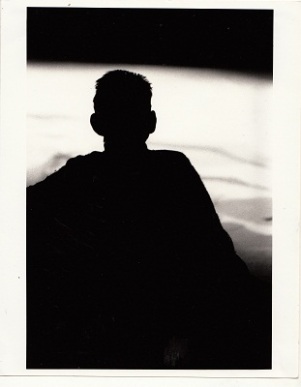Friday 2 May 2014, 6pm
Bulmershe Theatre, Minghella Building
University of Reading, Whiteknights Campus
Admission to this event is free, but seat availability is limited. To reserve your seat, please contact Gaenor Burchett-Vass: g.burchett-vass@reading.ac.uk.
‘Cinema and the Frontiers of Art’
Jacques Rancière
Ars gratia artis, the three words written on the scroll surrounding the head of the roaring lion at the beginning of the MGM movies may sum up the singularity of cinema. Cinema has blurred in many ways the frontiers separating pure art from the activities of the everyday and the forms of popular performance and entertainment. By the same token, it may have questioned the very unity of what we call art. Through examples borrowed from the history of film and from the history of cinephilia I wish to examine some aspects of this subversion of the frontiers of art.
Jacques Rancière, born in Algiers (1940) is Emeritus Professor at the University of Paris VIII, where he taught Philosophy from 1969 to 2000, and visiting professor in several American universities. His work deals with emancipatory politics, aesthetics and the relationship between aesthetics and politics. His books translated into English include notably: The Ignorant Schoolmaster (1991), Disagreement (1998) , The Politics of Aesthetics ( 2006) , The Future of the Image ( 2007), The Emancipated Spectator ( 2009), Proletarian Nights (2012) and Aisthesis (2013). He has authored three books dedicated to cinema (Film Fables, 2006; Bela Tarr. The Time after, 2013; The Intervals of Cinema, forthcoming, 2014)
The Centre for Film Aesthetics and Cultures (CFAC), University of Reading
The Centre for Film Aesthetics and Cultures (CFAC) will be a centre of international excellence in research and teaching of film, both with regard to its medium-specific qualities and its inherent interdisciplinary and intercultural properties. Endowed with an outward-facing ethos, CFAC will be a catalyst for expertise in film at the University of Reading. CFAC will understand aesthetics in its broadest sense: as an important branch of philosophy; as style and beauty pertaining to art; as a mode of cultural experience; and as sensory pleasure connecting filmmakers and film spectators. It will propose culture as the locale for human interaction and improvement, and as the necessary background for the analysis of any aesthetic object, most notably film, whose intercultural aspect derives from its own nature as an industrial and transnational medium. CFAC will investigate the ways in which film reflects the aesthetic politics inherent in the specificities of the medium as well as the cultural struggles and gains deriving from film’s interactions with different systems, practices and interests. CFAC will foster debates and links between the University of Reading and other research centres and film societies, as well as with the industries of production, distribution and exhibition, including international networks of arthouse film theatres and festivals. CFAC will keep a permanent schedule of activities, including: research grant management; national and international networking; conferences and workshops; seminar series; prestige lecture series; MA programmes; PhD and Postdoctoral training; publications and book launches.
To be included in the CFAC mailing list, please contact Prof Lúcia Nagib: l.nagib@reading.ac.uk
CFAC Staff
Director: Prof Lúcia Nagib
Executive Committee: Alison Butler; Dr Charles Ludwig Leavitt; Mr Chris Wagstaff; Dr John Gibbs; Prof Jonathan Bignell; Dr Jonathan Dronsfield; Dr Lisa Purse; Dr Peter Miskell; Dr Rachel Garfield; Prof Susanne Clausen; Dr Rebecca Hillman.
Associate Members: Prof Alison Jayne Donnell; Dr Andreas Behnke; Prof Anna McMullan; Dr Christina Hellmich; Prof Catherine Leglu; Dr Cindy Becker; Dr Daniela LaPenna; Dr Faye Woods; Guy Baxter; Dr Julia Waters; Prof Lib Taylor; Dr Madeleine Davies; Dr Neil Cocks; Dr Paola Nasti; Dr Rob Banham; Sara Zadrozny; Dr Simone Knox; Dr Ute Wolfel; Amrit Maghera-Johal.

